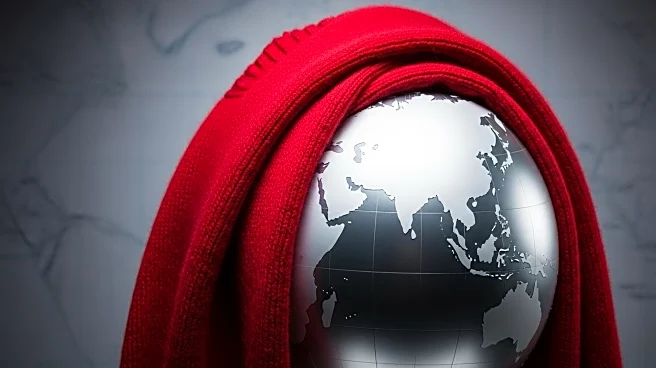What's Happening?
Brunello Cucinelli, an Italian luxury fashion brand, is under scrutiny for allegedly circumventing EU sanctions against Russia. These sanctions prohibit the sale of goods valued over 300 euros. The accusations, brought forth by Morpheus Research, suggest that Cucinelli has been engaging in aggressive discounting to clear inflated inventory and maintain operations in Russia. Despite the sanctions, Morpheus claims that Cucinelli's Russian stores remain open, selling high-value items, and benefiting from third-party distribution channels. The company has reaffirmed its compliance with EU rules and is considering legal action to protect its reputation.
Why It's Important?
The allegations against Brunello Cucinelli highlight the complexities and challenges faced by luxury brands in navigating international sanctions. If proven true, these actions could damage the brand's reputation and lead to legal consequences. The situation underscores the importance of compliance with international regulations and the potential risks of operating in sanctioned markets. For stakeholders, the stability of Cucinelli's accounts despite the loss of the Russian market raises questions about the company's operational strategies and ethical practices.
Beyond the Headlines
The case of Brunello Cucinelli raises broader ethical and legal questions about the fashion industry's role in geopolitical conflicts. It highlights the tension between maintaining business operations and adhering to international sanctions. The situation also reflects the challenges luxury brands face in balancing exclusivity with market demands, especially in regions with complex political landscapes.









